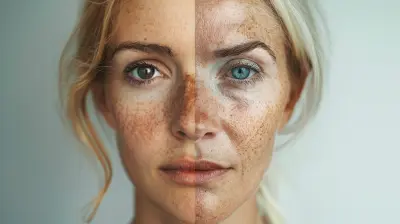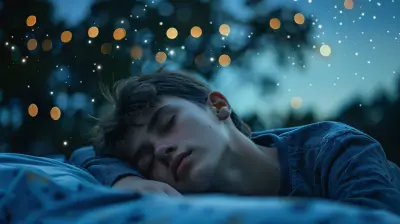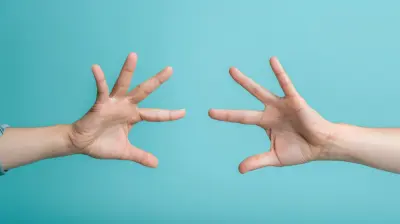How Alcohol Disrupts Your Sleep Cycle
2 October 2025
Ever wondered why you wake up groggy even after a "good night's sleep" following a night of drinking? Maybe you're puzzled why after a few drinks, you fall asleep quickly but still feel tired the next day. We’ve all been there. You’re not alone—and there’s a good reason for this fuzzy-headed misery.
Let’s break it down together (no science degree required): alcohol messes with your sleep cycle. Yep, that glass of wine or bottle of beer might feel like it's helping you unwind, but inside your body? It’s throwing a wild party and your sleep is the unfortunate victim.
In this post, we’re diving deep into how alcohol disrupts your sleep cycle and what that actually means for your health, energy, and overall well-being.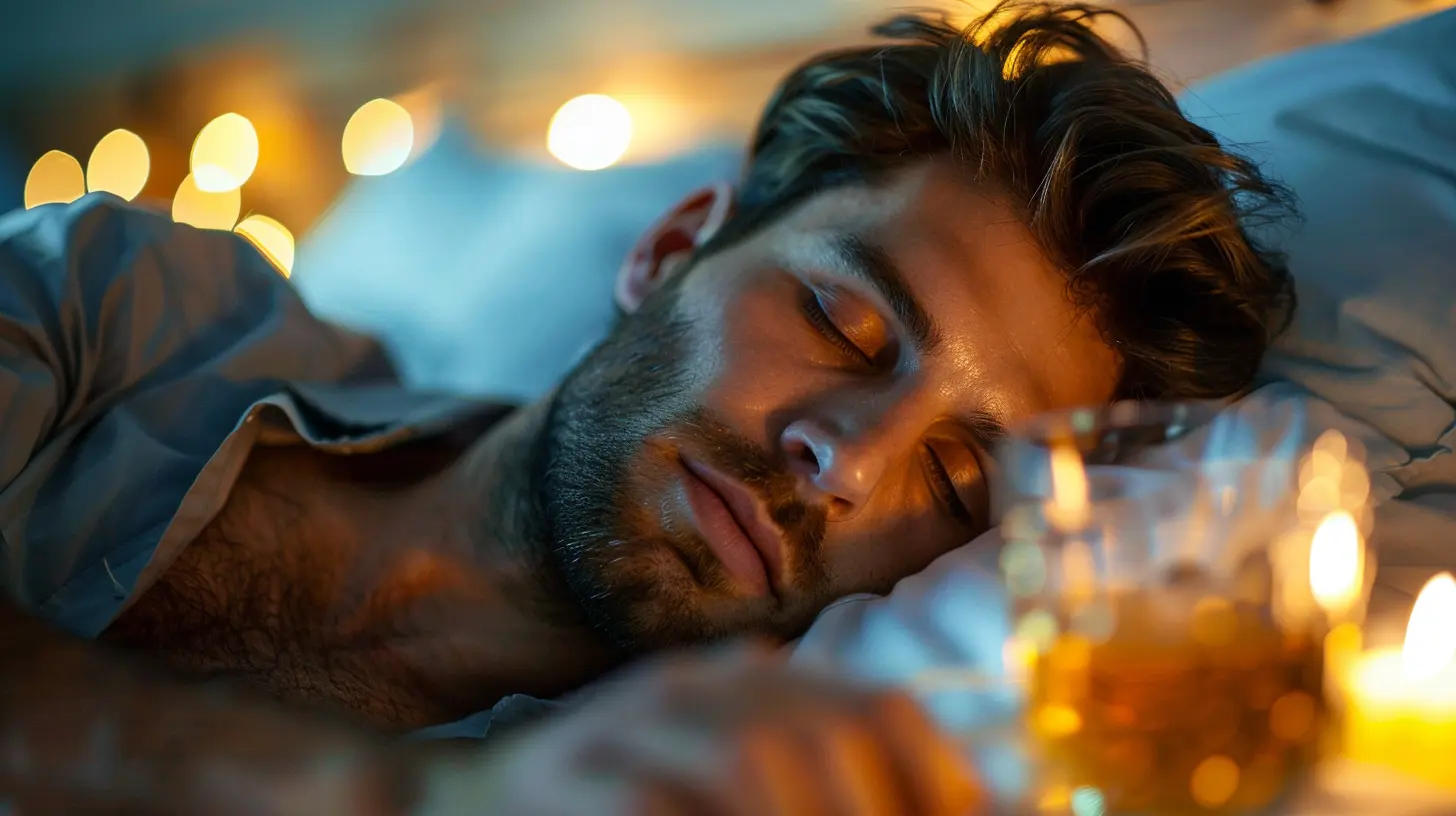
Why We Think Alcohol Helps Us Sleep
Let’s be real—it can feel like alcohol helps you knock out faster. And it actually does! Alcohol has sedative properties, so it slows down brain activity, making it easier to fall asleep.But here’s the catch: falling asleep isn't the same as getting quality sleep.
Imagine borrowing money with sky-high interest. You get quick cash now, but the payback is a nightmare. That’s basically what alcohol does to your sleep. It helps you fall asleep quickly but hijacks the restorative parts of your sleep cycle and messes up your body clock.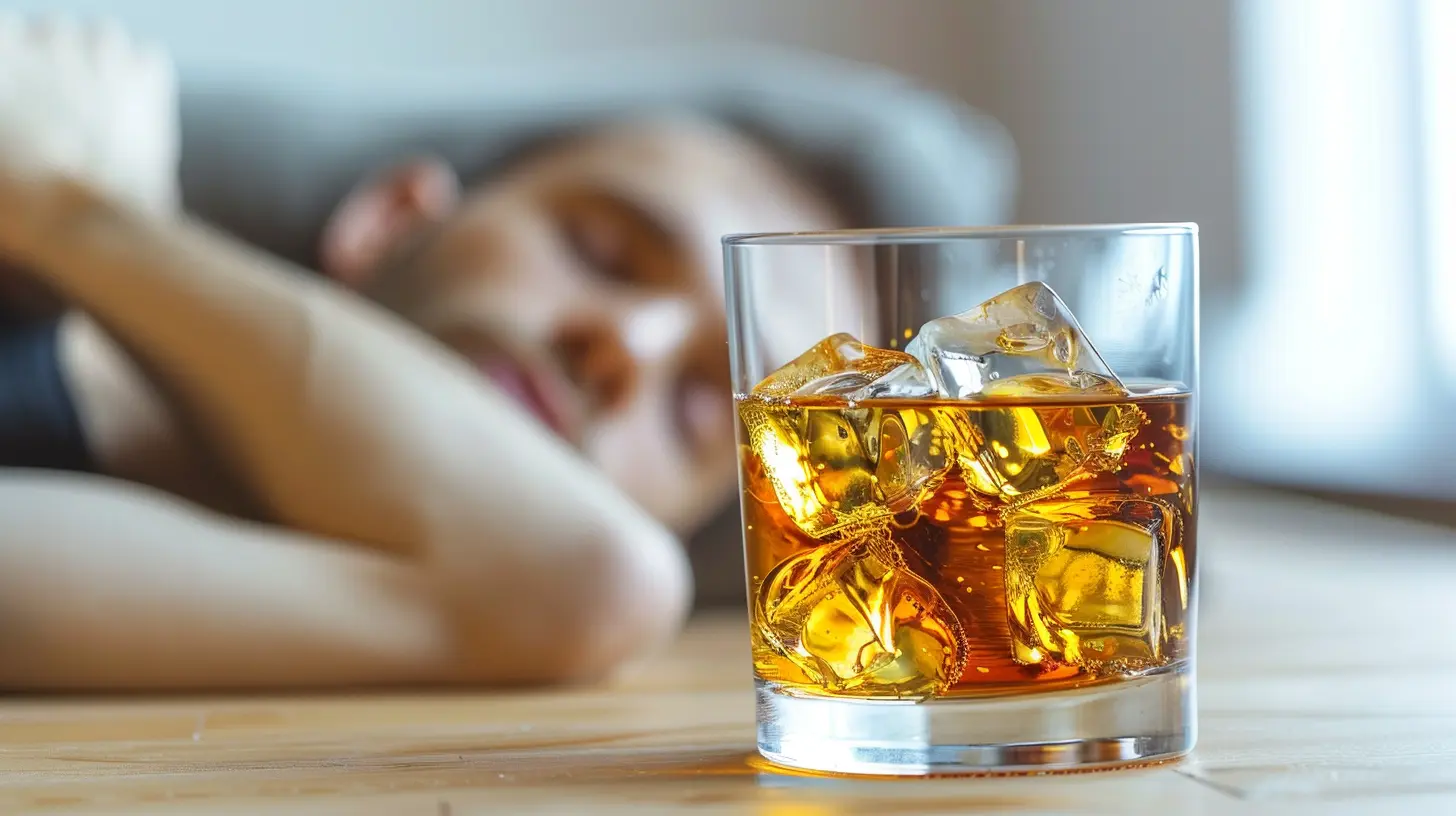
Understanding Your Sleep Cycle (Without Boring You to Tears)
Before we talk disruption, it helps to understand what we're disrupting. Your sleep isn’t just one long nap—it’s a cycle with multiple stages:1. Stage 1 (Light Sleep) – You're drifting off, easy to wake.
2. Stage 2 – Heart rate slows, body temp drops, brain starts to chill.
3. Stage 3 (Deep Sleep) – The good stuff. Physical recovery happens here.
4. REM Sleep (Rapid Eye Movement) – Dreamland. Mental recovery, memory processing, mood balancing.
You go through this cycle multiple times per night. Each stage plays a crucial role in making you feel rested, recharged, and ready to face the day.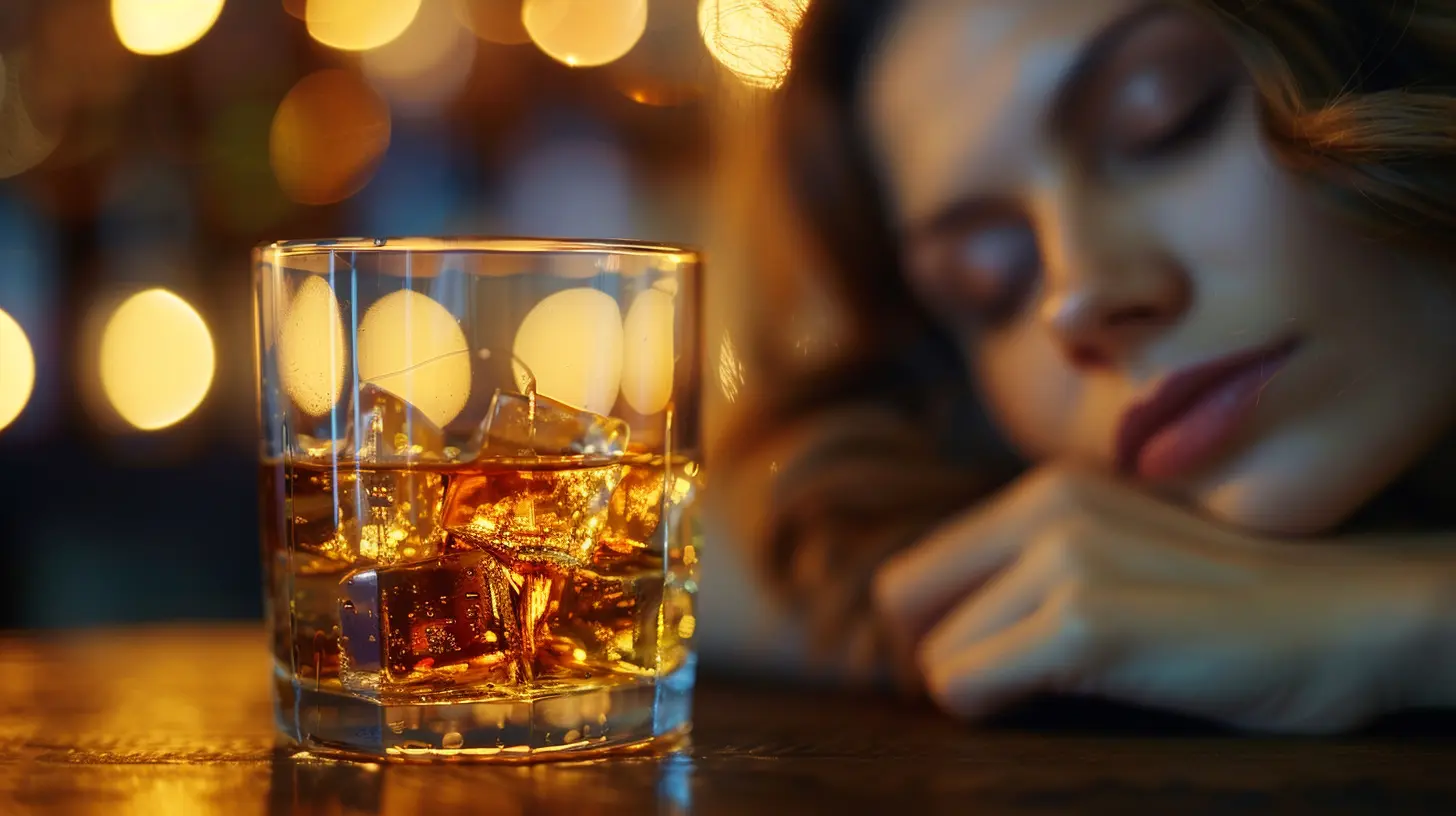
How Alcohol Takes a Sledgehammer to Your Sleep Cycle
Alright, here’s where it gets messy.1. It Delays REM Sleep
REM sleep is super important for your brain. It’s when your brain organizes thoughts, files memories, and hits the emotional reset button. Alcohol delays the onset of REM and reduces overall REM time.What’s that look like for you? You wake up feeling like your brain never went to bed.
2. It Breaks Up the Night
While alcohol can make you drowsy early on, it's also a diuretic (aka it makes you pee more). You'll likely wake up needing the bathroom. Plus, as your body starts metabolizing the alcohol, it actually stimulates your brain, making it harder to stay asleep.Ever notice how you wake up around 3 a.m. after drinking? That’s your body saying, “Okay, fun’s over. Time to be alert!”—even though it’s the middle of the night.
3. It Increases Sleep Apnea and Snoring
Alcohol relaxes your throat muscles—which sounds chill until you realize it can cause your airway to partially collapse. Enter: heavy snoring or even sleep apnea. If you're already prone to these issues, alcohol makes them worse.You’re not just disrupting your own sleep—you might be making life miserable for your partner, too (sorry, honey!).
4. You Get Less Deep Sleep
That golden stage where your body repairs itself? Alcohol seriously cuts into it. That means less physical recovery, more aches and pains, and a sluggish feeling the next day.Your body's trying to heal, detox, and refresh. But with alcohol around, it’s like trying to clean your house during a hurricane.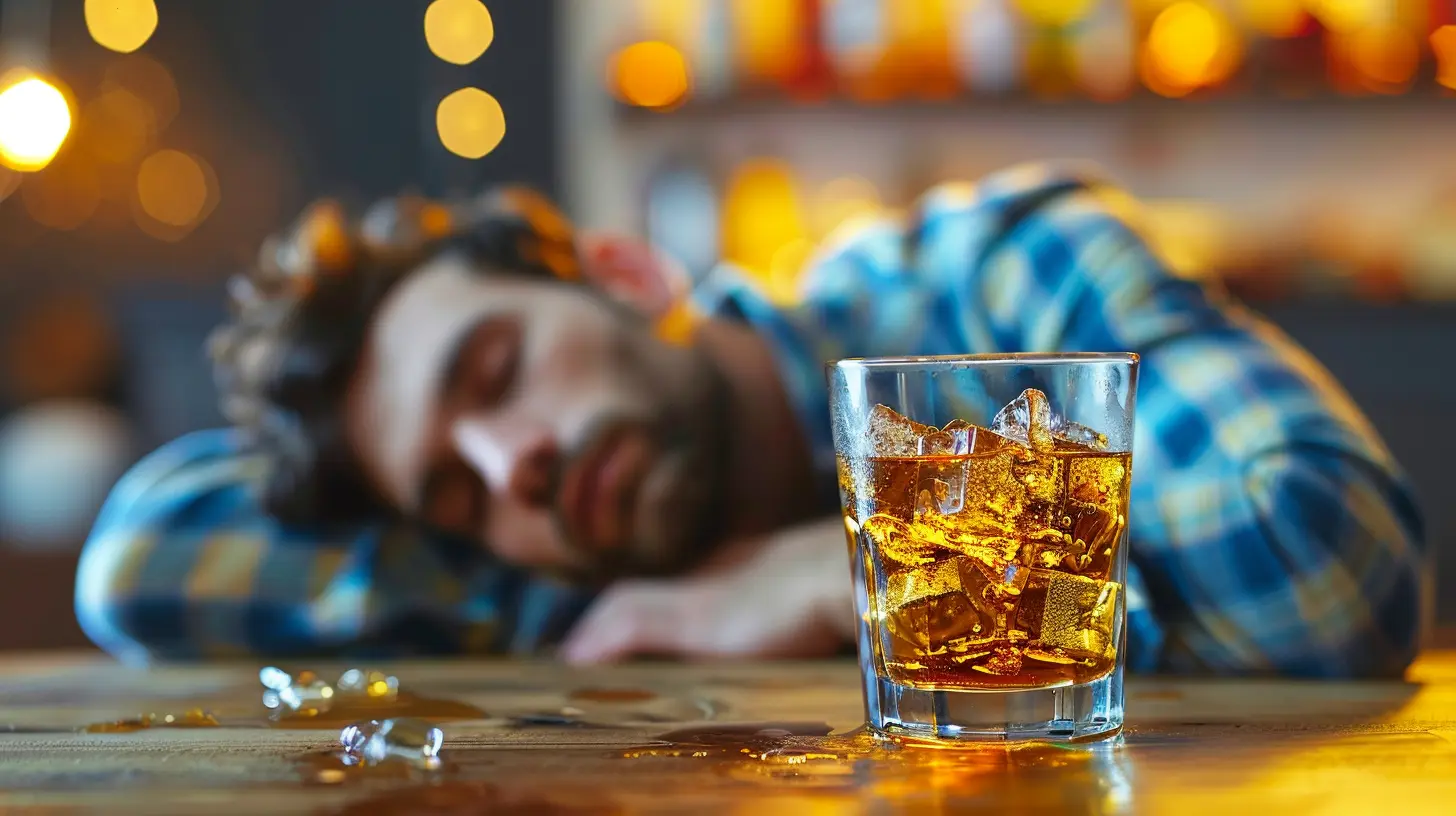
Short-Term Effects: Why You Still Feel Drained the Next Day
Even one night of poor-quality sleep can leave you feeling like a zombie. Here's what lack of proper sleep after drinking can do:- Brain fog
- Irritability
- Low energy
- Headaches
- Cravings for junk food (yes, that post-drinking pizza isn't just a coincidence)
It’s like your body and brain are stuck in slow motion while life moves at full speed.
Long-Term Effects: What Happens if This Becomes a Habit?
If drinking and poor sleep become a frequent combo, the issues pile up. Here’s what’s at stake:🧠 Mental Health Struggles
Poor sleep increases your risk for anxiety and depression. Pair that with alcohol (a known depressant), and you’ve got a cocktail for mood instability.💤 Chronic Fatigue
Consistently missing out on good sleep leaves you perpetually drained. No amount of caffeine can fix a sleep-deprived body.⚠️ Weakened Immune System
Regular interruption of your sleep cycle messes with your immune response. You may find yourself getting sick more often or taking longer to recover.⚖️ Weight Gain
Poor sleep affects your hunger hormones—making you crave high-calorie, high-carb foods. And let’s be honest, those late-night cravings don’t usually include salads.Let’s Talk About “Nightcaps”: Are They Really That Bad?
You might be thinking, “C’mon, what about a little nightcap to relax?” That’s a fair question.A single, small drink might not completely ruin your sleep, especially if it’s consumed a few hours before bed. But let’s be real—“one drink” often turns into two… then maybe three. And that’s where the trouble starts.
Plus, even one drink can shift your sleep architecture ever so slightly. Over time, even small disruptions stack up.
So if you’re regularly using alcohol as a sleep aid, it might be worth rethinking that strategy.
Better Ways to Wind Down Without Alcohol
Believe it or not, there are healthier and way more effective ways to relax before bed. Let me throw a few ideas your way:- Herbal teas: Chamomile and valerian root are great natural relaxants.
- A warm bath or shower: Helps drop your core body temperature, signaling it’s time for bed.
- Reading a book: Not something super thrilling, though—save the page-turners for daylight!
- Mindful meditation or deep breathing: Calms your nervous system and clears your mind.
- Journaling: A brain-dump session can help you process thoughts and worries.
- Gentle stretching or yoga: Releases physical tension and helps signal bedtime to your body.
These practices not only help you drift off—they help you stay asleep and wake up feeling like a human again.
Small Changes, Big Sleep Wins
Cutting back on alcohol doesn’t mean you have to give it up entirely (unless that's your goal). But even a few changes can do wonders:- Set a cutoff time: Avoid alcohol at least 3-4 hours before bed.
- Hydrate before and after: Water helps your body process alcohol and can reduce wake-ups.
- Skip drinks during high-stress days: When you’re emotionally drained, alcohol hits harder and disrupts sleep more.
- Track your sleep: Use a sleep app or journal to spot patterns and improvements.
Start small and notice how your sleep quality improves. You’ll be surprised how quickly your body thanks you.
Final Thoughts: Sleep Is Your Superpower
Here’s the truth: Nothing rejuvenates you like proper sleep. It’s the foundation of your mental health, physical wellness, and everyday energy.When alcohol is in the picture regularly, it’s like trying to sprint with lead shoes. You might move forward, but the drag is real.
So ask yourself—what’s more important? That glass of wine at night or waking up feeling like a total boss the next day?
Make sleep your new best friend. Trust me, it’s worth it.
all images in this post were generated using AI tools
Category:
Sleep HealthAuthor:

Laura Hudson
Discussion
rate this article
1 comments
Xylo Wright
Alcohol and sleep? Please, that’s like mixing fire and water—total chaos!
October 30, 2025 at 5:41 AM

Laura Hudson
You're right! Alcohol can significantly disrupt sleep patterns, leading to restless nights and chaos in our sleep cycles. It’s best to enjoy responsibly and prioritize good sleep hygiene.
